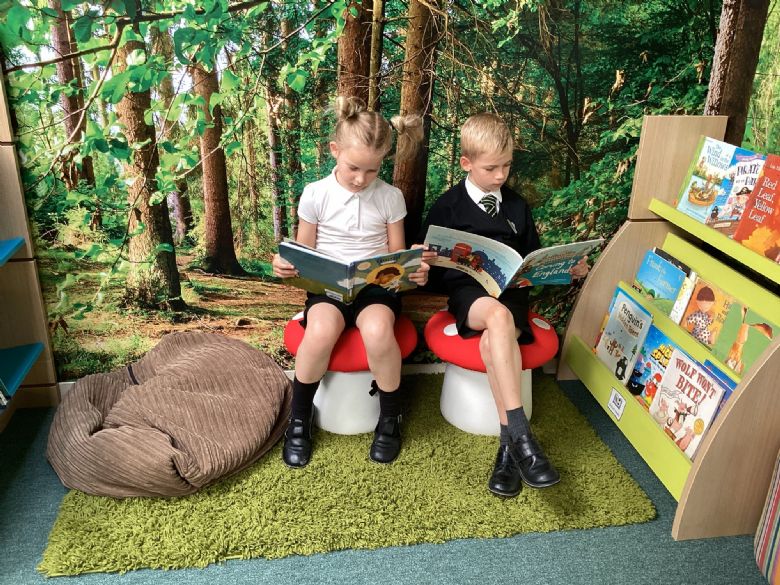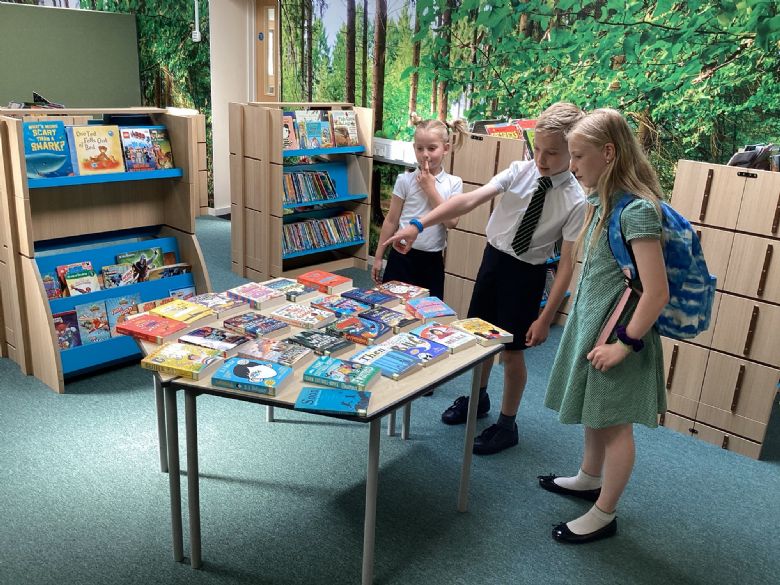Our Library
Our Library: The Heart of Woodlands
At Woodlands, the library sits at the very heart of our school, both physically and in spirit. Every class visits regularly to choose books, enjoy stories, and develop essential library skills. Our youngest pupils have dedicated Phonics teaching and use the library to take part in story sessions. Older pupils learn how to navigate the library and even train as Pupil Librarians, helping with book loans and supporting others in finding their next great read.
A well-stocked, welcoming library plays a vital role in every child’s educational journey. It:
• Fosters a love of reading through access to diverse, engaging books
• Builds literacy skills like vocabulary, comprehension, and writing
• Promotes independent learning by encouraging curiosity and exploration
• Provides a calm space for focused reading and reflection
• Teaches information skills for navigating both print and digital resources
• Encourages responsibility through book borrowing and care
And remember—parents and carers are the best reading role models. Talk about books, share your favourites, and ask your child what they’re enjoying. It makes all the difference.

